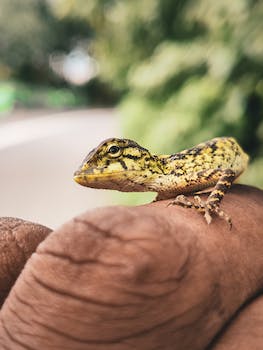Hey there fellow reptile owners! I know that it can be a bit overwhelming to figure out what to feed your scaly friend, so I thought I’d share some tips on how to provide a healthy diet for your reptile or exotic pet.
Research, research, research
The first and most important step is to research your specific pet’s dietary needs. Not all reptiles or exotics have the same diet, so it’s important to know what they need to thrive. Some may require a diet of mostly insects, while others may need a more plant-based diet.
Variety is key
Just like humans, reptiles and exotics need variety in their diets to get all the necessary nutrients. Don’t just stick to one type of food – mix it up! Offer a variety of insects, fruits, and veggies to keep your pet’s diet interesting and nutritious.
Supplements are important
Even with a varied diet, your pet may still need some supplements to ensure they’re getting all the necessary vitamins and minerals. Calcium and vitamin D3 are essential for many reptiles, while others may need vitamin A or E supplements. Do your research and consult with a veterinarian to determine what supplements your pet may need.

Know how much to feed
Overfeeding your pet can lead to health issues, so it’s important to know how much to feed them. Younger reptiles and exotics may need to be fed more frequently, while adults may only need to be fed once or twice a week. Again, research your specific pet’s needs and consult with a veterinarian to determine the appropriate feeding schedule.
Offer water and hydration
Don’t forget that your pet needs water too! Some reptiles and exotics may get enough hydration from their food, while others may need a water dish or misting to keep them hydrated. Make sure to provide fresh water daily and monitor your pet’s hydration levels.
Feeding your reptile or exotic may seem daunting at first, but with the right research and care, you can provide a healthy and nutritious diet for your scaly friend. Remember to mix up their diet, offer supplements as necessary, and provide fresh water and hydration. Happy feeding!